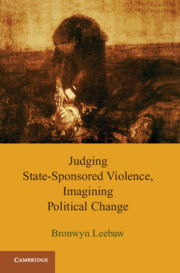Book contents
- Frontmatter
- Contents
- Acknowledgments
- 1 Introduction: Transitional Justice and the “Gray Zone”
- 2 Human Rights Legalism and the Legacy of Nuremberg
- 3 A Different Kind of Justice: South Africa's Alternative to Legalism
- 4 Political Judgment and Transitional Justice: Actors and Spectators
- 5 Rethinking Restorative Justice
- 6 Remembering Resistance
- 7 Conclusion: The Shadows of the Past
- Select Bibliography
- Index
- References
2 - Human Rights Legalism and the Legacy of Nuremberg
Published online by Cambridge University Press: 05 June 2012
- Frontmatter
- Contents
- Acknowledgments
- 1 Introduction: Transitional Justice and the “Gray Zone”
- 2 Human Rights Legalism and the Legacy of Nuremberg
- 3 A Different Kind of Justice: South Africa's Alternative to Legalism
- 4 Political Judgment and Transitional Justice: Actors and Spectators
- 5 Rethinking Restorative Justice
- 6 Remembering Resistance
- 7 Conclusion: The Shadows of the Past
- Select Bibliography
- Index
- References
Summary
In the summer of 2001, Slobodan Milosevic was delivered to the International Criminal Tribunal for the Former Yugoslavia (ICTY) to face charges of crimes against humanity. The extradition of Milosevic to The Hague followed a dramatic series of events that had occurred that spring. The former president of Yugoslavia was arrested by Serb forces on charges of corruption and abuse of power in early April after a long series of negotiations at his home, where he had allegedly “waved a gun, threatened to kill himself, his wife and daughter, and showed evidence of violent mood swings.” Milosevic had resigned from office after a popular uprising the previous October but continued to live in the official presidential residence and to act as leader of the socialist party. He surrendered only after having been assured that he would get a fair trial and that his arrest was not a pretext for transfer to The Hague. A few months later, however, the Serbian government handed him over to the international tribunal.
Human rights advocates hailed the extradition of Milosevic as a “great triumph for the victims of war crimes in the former Yugoslavia” and as evidence that “no leader accused of crimes against humanity is beyond the reach of international justice.” The ICTY was the first international criminal tribunal to be established since the Nuremberg Trials and widely viewed as a model, or at least a major precedent, for the International Criminal Court.
- Type
- Chapter
- Information
- Publisher: Cambridge University PressPrint publication year: 2011



